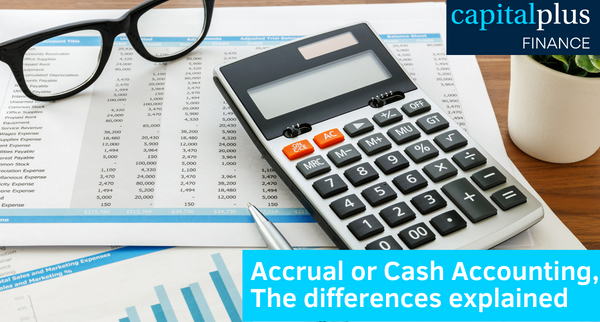If you’ve been in business for a while or studied basic business courses before, you’ve probably heard of cash and accrual accounting. Being aware is very different to knowing, so it pays to actually understand both accounting methods and how they might apply to your business finances and managing your books. Each method has advantages and disadvantages, and the differences may substantially impact your bottom line, depending on your industry and business model. Let’s take a look at both, an example, and how to choose between the two.
What is cash accounting?
Cash accounting records the actual money moving out of and into your business’s bank account. When you have a bill to pay, it’s not recorded until you actually hand over the money to the creditor, and it’s marked as paid. When you send an invoice to a customer for work completed, it’s not recorded until they actually pay you the money owed.
Cash accounting is the most straightforward method of accounting that mimics your business’s cash flow. It works better for operations based on cash, or transactions not completed on credit, such as a convenience store or nail salon. It gives you the most accurate representation of how much cash you have on hand, where it’s gone and where it’s come from. Having said that, it doesn’t provide any information about money owed or money your business owes. And that’s where accrual accounting comes in.
What is accrual accounting?
Accrual accounting is different to cash accounting as it does not track cash itself. Instead, it tracks a more accurate financial position by taking into account what is owed (to you and from others). It does this by tracking sales and expenses when they take place instead of when the cash is exchanged.
Accrual accounting is, therefore, often far more complicated than cash accounting since it has more moving parts. It’s typically better for businesses that perform services on credit (send an invoice for customers to pay later). A builder might complete their work and receive their outstanding payments months down the line. This gets recorded as revenue upon completion (or even work in progress) under accrual accounting, whereas cash accounting would not recognise the sale until cash has been received. On the expense side, interest owed on a business loan, for example, is accumulated as an expense when it is accrued, not just when the payment is made to the lender.
Cash vs accrual accounting: an example
Sometimes it helps to look at a practical example to illustrate how the different methods actually impact the bottom line. Let’s consider the following four transactions for the month of August:
- You sent out an invoice for $10,000 for landscaping work completed earlier in the month.
- You received an invoice for $2,000 in supplies delivered earlier this month.
- You paid $200 in fees for an invoiced bill you were sent last month.
- You received $3,000 from a customer for work that was invoiced last month.
If we apply the cash accounting method, your profit for the month of August would be $2,800. This is the $3,000 cash received from the customer minus the $200 in fees you paid this month.
If we apply the accrual accounting method, your profit for the month of August would be $8,000. This is the $10,000 in income issued to the customer minus the $2,000 invoice received for supplies purchased.
As you can see, there is a stark disparity between the two methods. It’s also worth keeping in mind that the month of September may look very different as cash is received for the work completed in August. Cash flow remains the same, but the profit presented is often very different between the two methods.
How to choose between cash and accrual accounting
There are quite a few things to consider when deciding which method to use for your business. You need to think about the size of your business, as cash accounting is usually more appropriate for smaller operations with less complex transactions. Accrual accounting requires additional resources to manage and track more complicated rules and methods. Therefore it’s often best for larger businesses that gain additional insight and reporting clarity from using it.
Many modern electronic accounting systems make accrual accounting a much easier process, even for small businesses. Additionally, if you run your business with a lot of inventory, accrual accounting is a better choice, given how much capital is tied up in stock and forward orders. Consider your business’s characteristics, what accounting software you use, and your professional accountant’s advice to make an educated decision about which method is best for your business in the long run.
Capital Plus Finance is an experienced business finance broker. Choosing the right business funding solution for you is what we do. With a panel of many lenders, the Capital Plus Finance team will do everything we can to help your business qualify for a suitable funding option, no matter which accounting method you use. Please give us a call anytime to find out more or to have an obligation-free chat about your situation.





